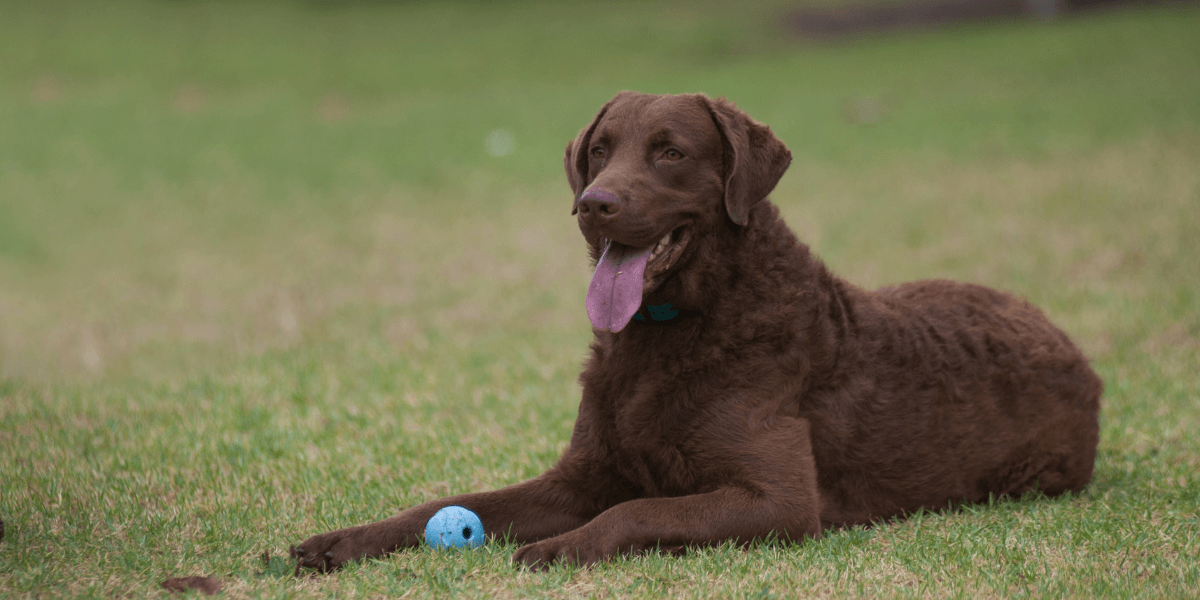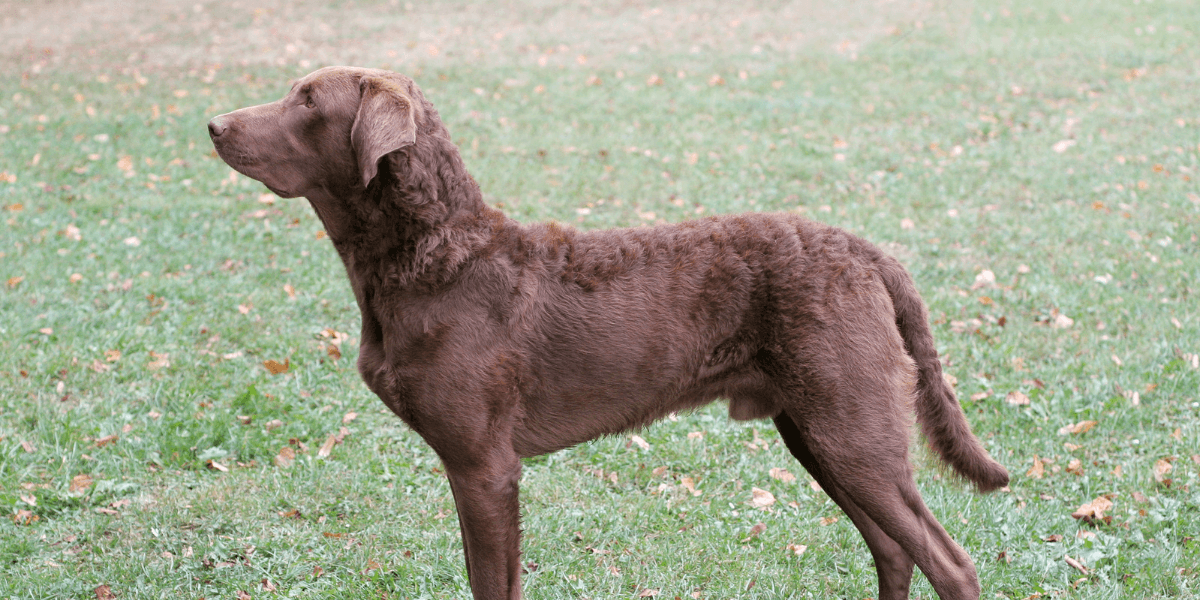Introduction
Understanding Chesapeake Bay Retriever temperament is key to knowing what to expect from this breed.
- Their intelligence makes them quick learners, but they can be stubborn
- They are protective and often develop deep bonds with their families
- This breed is energetic, needing regular exercise to stay balanced
- With proper training, they make excellent companions and family pets
- Understanding their temperament helps ensure a good match for your lifestyle
1. Loyal and Protective Nature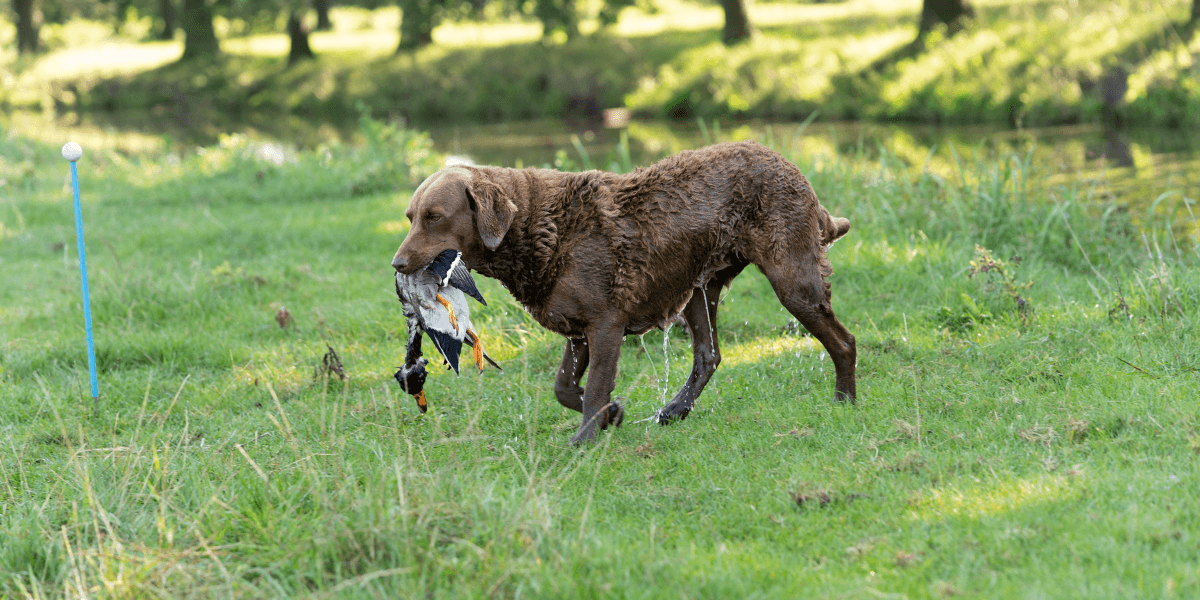
Chesapeake Bay Retrievers are naturally loyal and protective of their families.
- Strong Bonds: They form deep connections with their owners
- Guarding Instincts: Often show guarding behavior towards home and family
- Alertness: Remain alert and aware of their surroundings
- Defensive Stance: May become defensive if they sense a threat
- Cautious with Strangers: Tend to be cautious around unfamiliar people
- Reliable Companions: Are reliable and dependable family companions
- Early Socialization: Early socialization helps manage protective instincts
- Trust Building: Building trust is key to managing their protective nature
2. Energetic and Active
This breed is highly energetic and needs regular exercise to stay balanced.
- Daily Exercise: Requires at least 60 minutes of exercise daily
- Outdoor Activities: Enjoy outdoor activities like running and hiking
- Mental Stimulation: Need mental stimulation to prevent boredom
- Playful Nature: Enjoy games like fetch and interactive play
- Endurance: Has a high endurance level suitable for active families
- Indoor Games: Use indoor games to keep them active on rainy days
- Structured Routine: Thrive on a structured exercise routine
- Calming Exercises: Regular activity helps calm their high-energy
3. Intelligent but Independent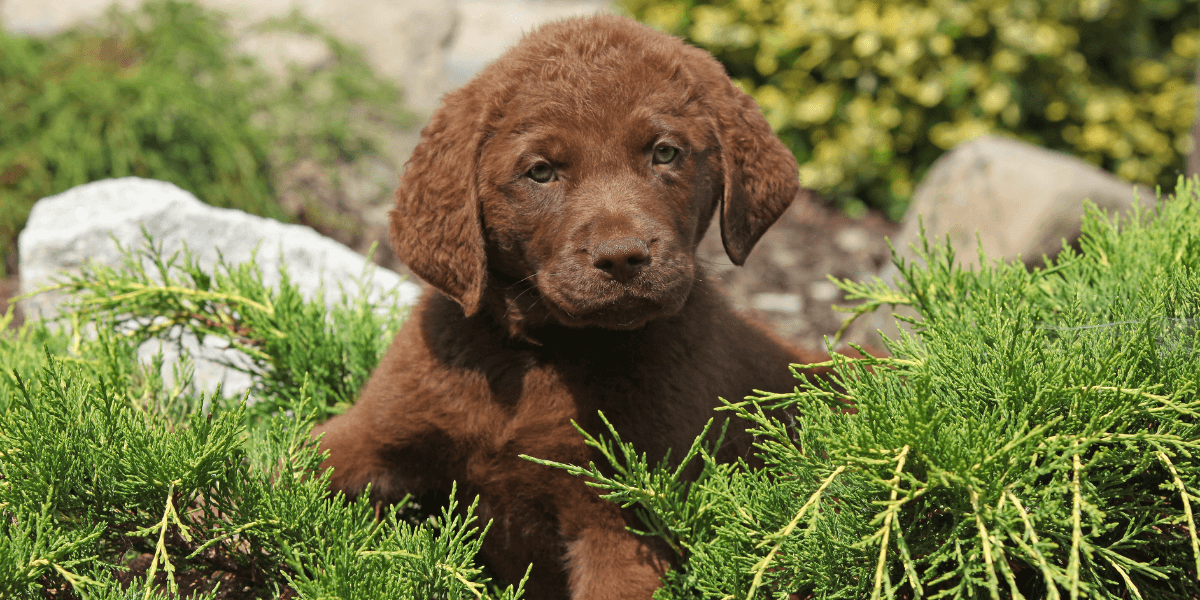
Chesapeake Bay Retrievers are intelligent but can also be quite independent.
- Quick Learners: Learn new commands and tricks quickly
- Problem Solvers: Excel at problem-solving and mental challenges
- Stubborn Streak: Can be stubborn, especially if bored
- Consistency Needed: Consistent training is essential for obedience
- Self-Sufficient: May act independently in certain situations
- Training Variety: Use varied training techniques to keep them engaged
- Positive Reinforcement: Respond best to positive reinforcement
- Patience Required: Patience is key when training an independent dog
4. Affectionate with Family
A key aspect of Chesapeake Bay Retriever temperament is their deep affection for family members.
- Cuddle Enthusiasts: Enjoy cuddling and spending time with their owners
- Attachment: Form strong attachments to family members
- Emotional Awareness: Can sense the emotions of their loved ones
- Love Attention: Thrive on love and attention from their family
- Involvement: Enjoy being included in family activities
- Social Dogs: Often seek out social interactions with their family
- Daily Interaction: Regular interaction is needed for a healthy bond
- Secure Feeling: Feel secure and happy when near their loved ones
Discover if German Shepherds make good family pets and how they compare to Chesapeake Bay Retrievers.
5. Alert and Observant
This breed is naturally alert and observant, making them excellent watchdogs.
- Keen Senses: Have sharp senses and notice changes in their environment
- Vocal Alerts: May bark to alert owners of unusual activities
- Sensitive to Sounds: Sensitive to noises and movements around them
- Reactive Nature: Quick to react to anything they perceive as a threat
- Calm Under Pressure: Often remain calm in tense situations
- Good Watchdogs: Serve as effective watchdogs for families
- Guard Duty: Instinctively perform guard duties without training
- Encourage Calmness: Training helps maintain calm behavior
6. Strong-Willed Personality
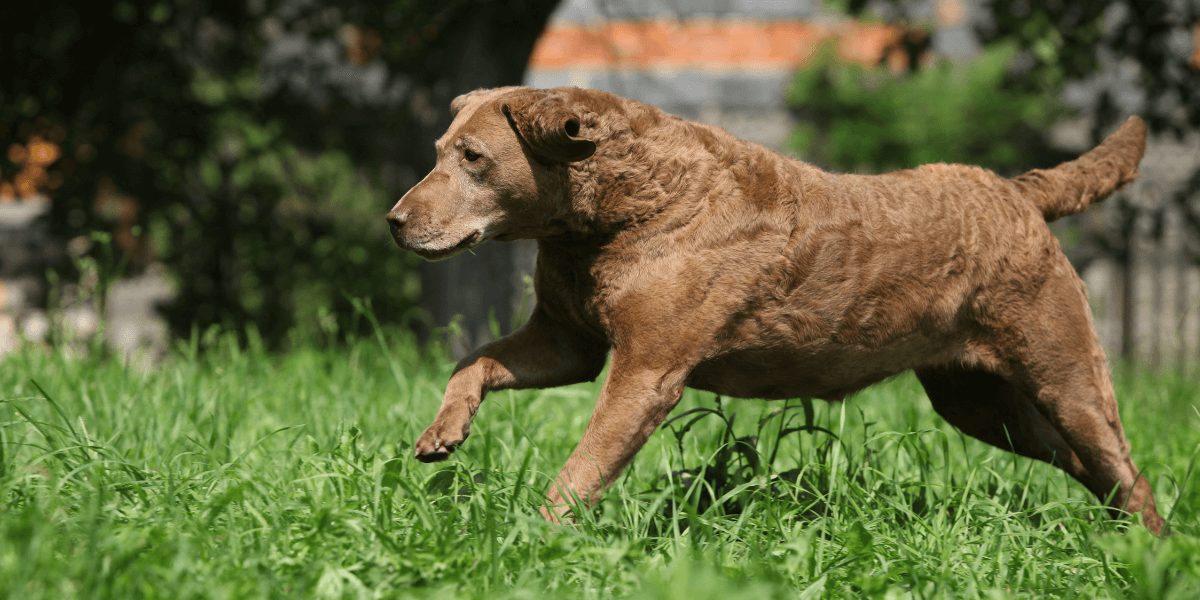
Chesapeake Bay Retrievers have a strong-willed personality and need firm guidance.
- Confident Dogs: Are confident and self-assured
- Leadership Need: Need a strong leader to respect and follow
- Firm Training: Firm, consistent training helps manage their willfulness
- Clear Boundaries: Set clear boundaries to prevent dominance issues
- Persistent Dogs: Can be very persistent in getting what they want
- Respect Earned: Earn their respect with consistent commands
- Avoid Harshness: Avoid harsh training methods; they respond better to kindness
- Mutual Trust: Trust is key in managing a strong-willed dog
Learn effective training tips for managing your Chesapeake Bay Retriever's strong-willed personality.
7. Compatibility with Children and Other Pets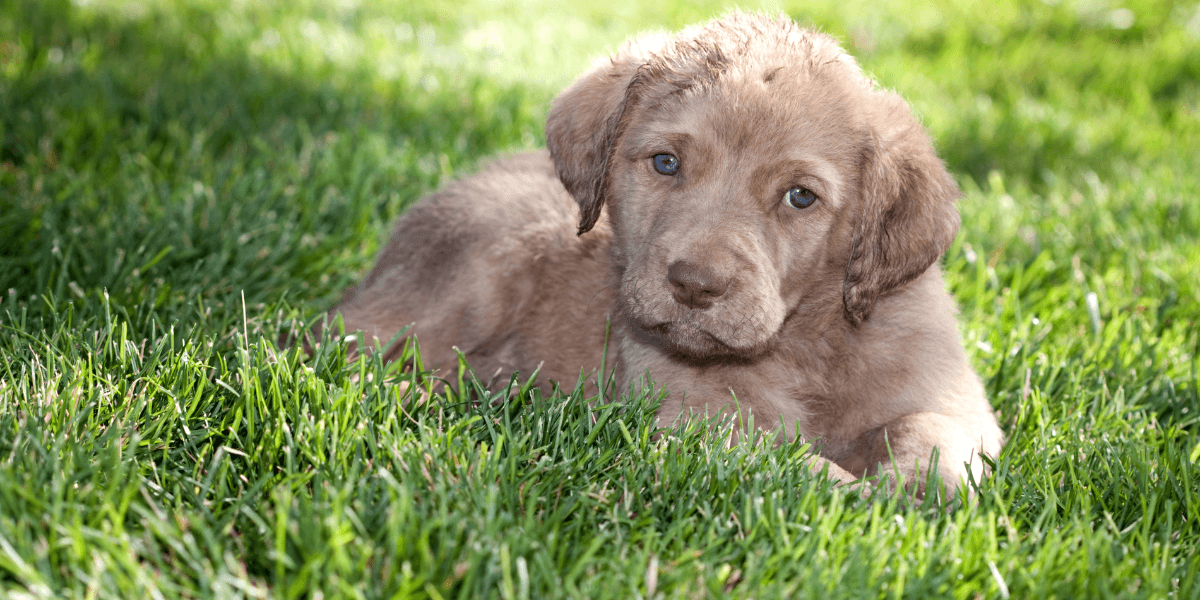
They can be good with children and other pets with proper training and socialization.
- Gentle Play: Usually gentle with children, especially if raised together
- Patient Dogs: Often show patience with younger kids
- Positive Socialization: Early socialization is crucial for compatibility
- Controlled Interactions: Supervised interactions are important with small children
- Pet Friendly: Can get along with other pets if introduced properly
- Training Needed: Training helps manage their interactions with other animals
- Supervised Play: Always supervise play sessions with young kids or small pets
- Teach Boundaries: Teach both kids and pets boundaries for safe interactions
Find out how Chesapeake Bay Retrievers interact with children and other pets compared to Bernese Mountain Dogs.
FAQs
1. Are Chesapeake Bay Retrievers good family pets?
- Yes, they are loyal and affectionate with proper training and socialization
2. Do they need a lot of exercise?
- Yes, they require at least 60 minutes of daily exercise to stay balanced
3. Are they easy to train?
- They are intelligent but can be stubborn, requiring consistent training
4. Do they get along with other pets?
- With early socialization and proper introductions, they can be pet-friendly
5. Are they good with children?
- Yes, they are generally good with children, especially if raised together
6. Can they be left alone for long periods?
- They may develop separation anxiety if left alone for extended periods
7. What makes them good watchdogs?
- Their alertness and protective instincts make them effective watchdogs
Conclusion
- Knowing the Chesapeake Bay Retriever temperament helps ensure a great match for your home
- They are loyal, and protective, and form strong bonds with their families
- Regular exercise and mental stimulation are crucial to keeping them balanced
- Patience and consistency are needed to handle their strong-willed nature
- Socialization and training help them get along with kids and other pets
- Embrace their unique temperament to build a lasting bond


